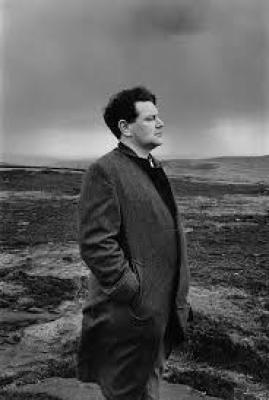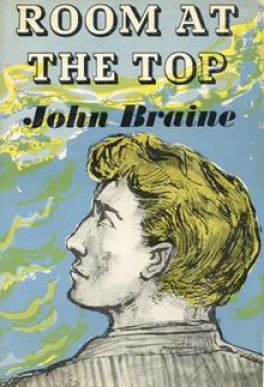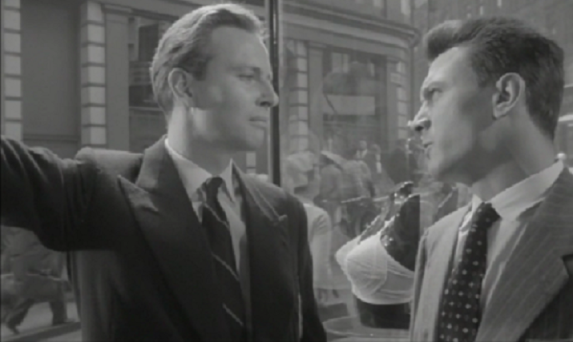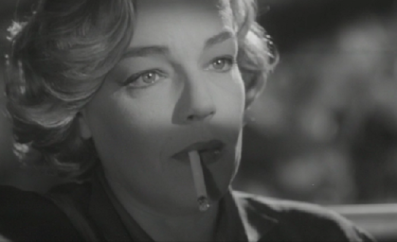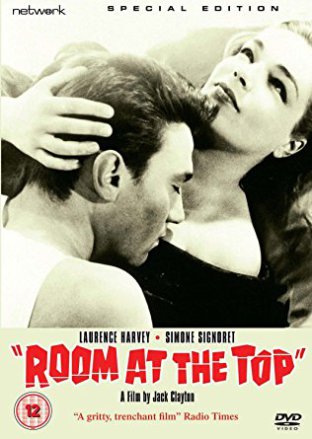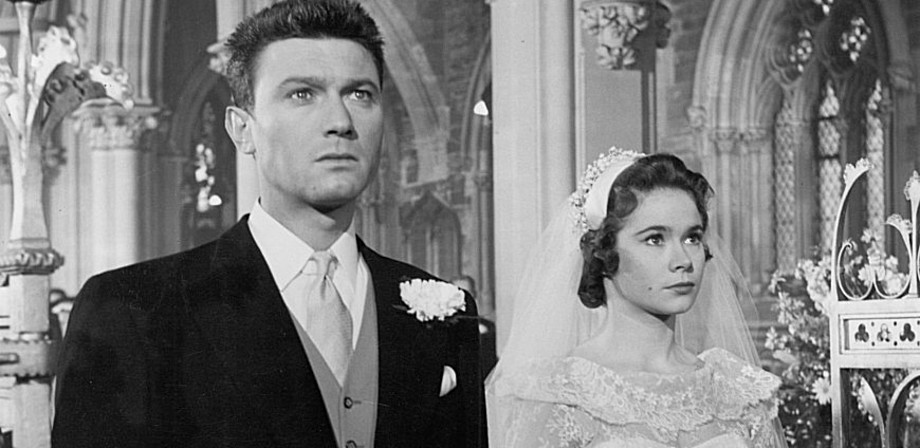
ROOM AT THE TOP (1959)
From the novel by John Braine published in 1957
John Braine's first novel, 'Room at the Top', became a best seller and did even better when it was turned into a feature film 2 years later. Rather like Stan Barstow, who was unable to replicate his first success wtih 'A Kind of Loving' despite bringing the character(s) back in two further novels, Braine never again enjoyed the same success although he did try with 'Life at the Top' and finally 'Man at the Top', along with a number of other, largely unread and forgotten novels. It seemed inevitable that he would be lumped in with other, similar authors and writers as an Angry Young Man, although famously the Daily Express reported in an interview in May 1957 that "He would like it to be known that he couldn't be less angry"; having made £10,000 from the book in just the first two months after publication (at a time when he was earning only £600 from his day job) might have had something to do with that. He equally famously said that "What I want to do is drive through Bradford in a Rolls-Royce with two naked women on either side of me covered in jewels", which is very much Joe Lampton's world (although I've always wondered whether he was meant to be covered in jewels, or the women).
The book may well have been written with an eye on the film version, as it translates very smoothly to the screen, as "A savage story of lust and ambition", a line which features in almost all the posters of the time. It is vaguely autobiographical in the sense that Joe Lampton, an ambitious early-20s young man, leaves the impoverished small town of Dufton (probably based on Thackley, to the north of Bradford) for the brights lights of Warley (Warnley in the film, no idea why they changed it slightly), with Warley either based on Bingely or Bradford, depending on which article you're reading.
The film's locations are interesting, as some sources say much of it was filmed in Bradford (see for example www.reelstreets.com) with others pointing to much of it being filmed in Halifax (especially Warnley train station) but there's no doubt that Keighley stood in for Dufton, where Joe goes back to see his aunt and uncle.
Joe's ambition
The overriding theme of the book is that Joe Lampton wants it all, and this comes across right from the start. The novel is narrated in the first person, and before we've got to the bottom of the first page we are told that he is reflecting on the past:
But I looked well enough that morning ten years ago...
Arriving in Warley in the morning, he is met by Mrs Thompson, with whom he had arranged lodgings before starting his new job, and after unpacking he takes a walk around town, where he notices a young couple coming out of a solicitor's office and getting into an Aston-Martin. He muses on the couple for some time, before concluding, in one of the novel's most iconic moments:
For a moment I hated him. I saw myself, compared with him, as the Town Hall clerk, the subordinate pen-pusher, half-way to being a zombie, and I tasted the sourness of envy. Then I rejected it. Not on moral grounds; but because I felt then, and still do, that envy's a small and squalid vice - the convict sulking because a fellow-prisoner's been given a bigger helping of skilly. This didn't abate the fierceness of my longing. I wanted an Aston-Martin, I wanted a three-guinea linen shirt, I wanted a girl with a Riviera suntan - these were my rights , I felt, a signed and sealed legacy....I made my choice then and there: I was going to enjoy all the luxuries which that young man enjoyed. I was going to collect that legacy.
This is transcribed directly onto screen in this short scene:
Joe seems to think entirely in terms of what we would now call branding; in this section, where he looks down on Warley with Susan, he describes the town almost solely in terms of the products produced there:
I raised myself on my elbow and looked down at Warley in the valley below. I could see it all: the Town Hall with the baskets of flowers above the entrance, the boats on the river at Snow Park, the yellow buses crawling out of the station, the big black finger of Tebbut's Mills in Sebastopol Street, the pulse of traffic in Market Street with its shops whose names I could recite in a litany - Wintrip the jeweller with the beautiful gold and silver watches that made my own seem cheap, Finlay the tailor with the Daks and the Vantella shirts and the Jaeger dressing gowns, Priestley the grocer with its smell of cheese and roasting coffee, Robbins the chemist with the bottles of Lentheric after-shave lotion and the beaver shaving-brushes - I loved it all, right down to the red-brick front of the Christadelphian reading-room and the posters outside the Coliseum and Royal cinemas, I couldn't leave it. And if I married Alice I'd be forced to leave it.
Setting in time
One of the most interesting aspects of the film and book for me is that the film particularly was seen as part of the 'New Wave' of films in the late 50s/early 60s (see my page on these films on his website), modern, contemporary social dramas. And yet the book - and film for that matter - is set in 1946/7. Braine wrote it in the early 1950s, and it was published in 1957, so the line quoted above referring to 10 years ago places it back in 1947; at one point though Joe rather helpfully goes over his CV, and says that he was born in January 1921, and at another point in the book (after Christmas, at the start of Chapter 11) he tells Alice that he is 25, which would place this scene in early 1946. The film is much more vague, although in one shot Joe receives a letter asking him to come to Dufton (or Dufdon, as it is in the letter) about a job, and the letter is clearly dated 08 May 1947.
I always found it odd that a film which I assumed was set in the mid-late 50s kept referring to Lampton's experiences as a POW in WWII - surely he'd be too young? - but once I realised that it was set just after the war it made more sense. The book has much more of the flavour of the post-war period - rationing is mentioned, and Joe reflects on the bombing that killed his parents, and so forth - but one charcter is retained from the book, albeit in a rather different guise, who highlights this aspect: Jack Wales.
In the novel Wales is the boyfriend of Susan Brown, the daughter of the local bigwig, and therefore Joe's rival, but other than that he is an inoffensive character; in the film, as played by John Westbrook, he is a far more unpleasant and superior person, who highlights all Joe's feelings of class inadequacy, particularly as he insists on calling Joe 'Sargeant', as he knows it annoys him. This constant harping back by Wales to the war, and their relative positions during the war, is one of the few direct references to the period setting in the film; whether the clothes and cars etc match the period is hard for me to say, although I've seen a lot of 40s and 50s films and I suspect that they didn't make any effort to get the period right in terms of overall setting. Wales is also able to rub in the fact that, although both he and Joe were POWs, Wales escaped, implying that Joe was too much of a coward to.
Alice Aisgill
Joe, of course, pursues Susan Brown, mainly as it will open up so many doors for him given whose daughter she is; but he falls for Alice Aisgill, a fellow am-dram thespian at the local dramatic society, although she is much older than him and already married (albeit to a man who is too busy having affairs of his own to worry about her too much). The generally accepted view is that Joe truly loves Alice, whereas he is only playing with Susan, and there are plenty of references in the book - which cannot easily be replicated in a film, without an intrusive voice over - to the differences between Alice and Susan.
Alice in the book is about 10 years or so older than Joe, and of course the strangest casting decision was making her French, in the form of Simone Signoret. There are differing accounts of whose decision it was, but it doesn't make much of a difference in the long run, althougn by being French there is a certain Continental sophistication attached to her, which may indeed have helped in terms of the sex scenes, if one can call them that. This was Signoret's first British film, and it won her a Best Actress Oscar. In this scene, which follows the book very closely, the couple split up over Joe's distaste for Alice's nude modelling some years before, but not before uttering some remarks which make us wince now (in the book, both Alice and Susan also refer more than once to wanting to be beaten and hurt, very much a sign of the way women were viewed at the time, or more specifically how some men thought women viewed themselves):
Missing scenes and characters
As I said at the start, the film is a very faithful adaptation of the novel, and very little is changed or left out. There are only two or three missing or added scenes that I am aware of, and none of them have much, if any, impact on the film. One character that is dropped is Joe's friend Charles Lufford, who stays behind in Dufton but whom he sees again on Boxing Day when he goes back there to stay with his Aunt Emily at Christmas. Charles' function is really to let Joe think his thoughts out loud; it is made clear that the two of them are like brothers, thinking alike (they both refer to many of Dufton's good citizens as Zombies), but Charles Soames (played by Donald Houston in the film, see clip above) performs much of the same role, acting as Joe's friend at the office (it is he, and his fiancee June, who find a badly beaten up Joe at the end of the film, whereas in the book it is two amdram friends, Eva and Bob, who help him).
Joe and Alice spend a few days in Dorset in both book and film (but in the book he stays on for another week or so with two friends, whereas Alice has to return) and on her return she falls ill and is in hospital for two months, during which time Joe doesn't see her. This is omitted from the film, but one scene is added which does not feature in the book; George Aisgill makes it clear to Joe that trying to get Alice to divorce him and marry Joe is a non-starter:
The scenes where Brown, Susan's father, makes his offer to Joe, and where Joe is told about Alice's death, are pretty much intact, although there was little trouble with the censors over how to describe her death ( in the novel Teddy tells her that 'She was scalped and the steering column-' whereas in the film the bit about being scalped is omitted. In the novel though, when he first hears of Alice's death, his first thought, as usual, is for himself:
'You don't seem bothered about Alice Aisgill,' he said. 'Or hadn't you heard?'
'What about her?'
'She's dead.'
O merciful God, I thought, she's committed suicide and left a note blaming me. That's finished it. That's finished me in every possible way.
The ending
The last sequence in the film, shown below, is not in the book, which ends in the same way as the previous scene in the film, with Joe having been beaten up by the jealous boyfriend of a woman he has picked up the night before and found by Bob and Eva/Charles and June:
I went on crying, as if the tears would blur the image of Alice crawling round Corby Road on her hands and knees, as if they would drown her first shrill screams and her last delirious moans. 'Oh, God,' I said, 'I did kill her. I wasn't there, but I killed her.'
Eva drew my head on to her breast. 'Poor darling, you musn't take on so. You don't see it now, but it was all for the best. She'd have ruined your whole life. Nobody blames you, love. Nobody blames you.'
I pulled myself away from her abruptly. 'Oh my God,' I said, 'that's the trouble.'
The film ends instead - very effectively, in my opinion - with the now-inevitable wedding of Joe and Susan, and the famous last line, where Susan sees a tear in Joe's eye:
Both book and film are easily available; my copy of the novel is a Mandarin paperback from 1989, which I got from abebooks for about £2.50; a new copy from Cornerstone publishers will set you back about £9.
The DVD is not particularly cheap, around £8-£10 on Amazon, there's a 'Special Edition' from Network for around that price, but I have no idea what is so 'special' about it.
There was a remake on TV a few years ago, but I missed it.
The good folks at Talking Pictures TV probably show it from time to time, and you might be able to watch it on youtube as full films come and go on there from time to time.
